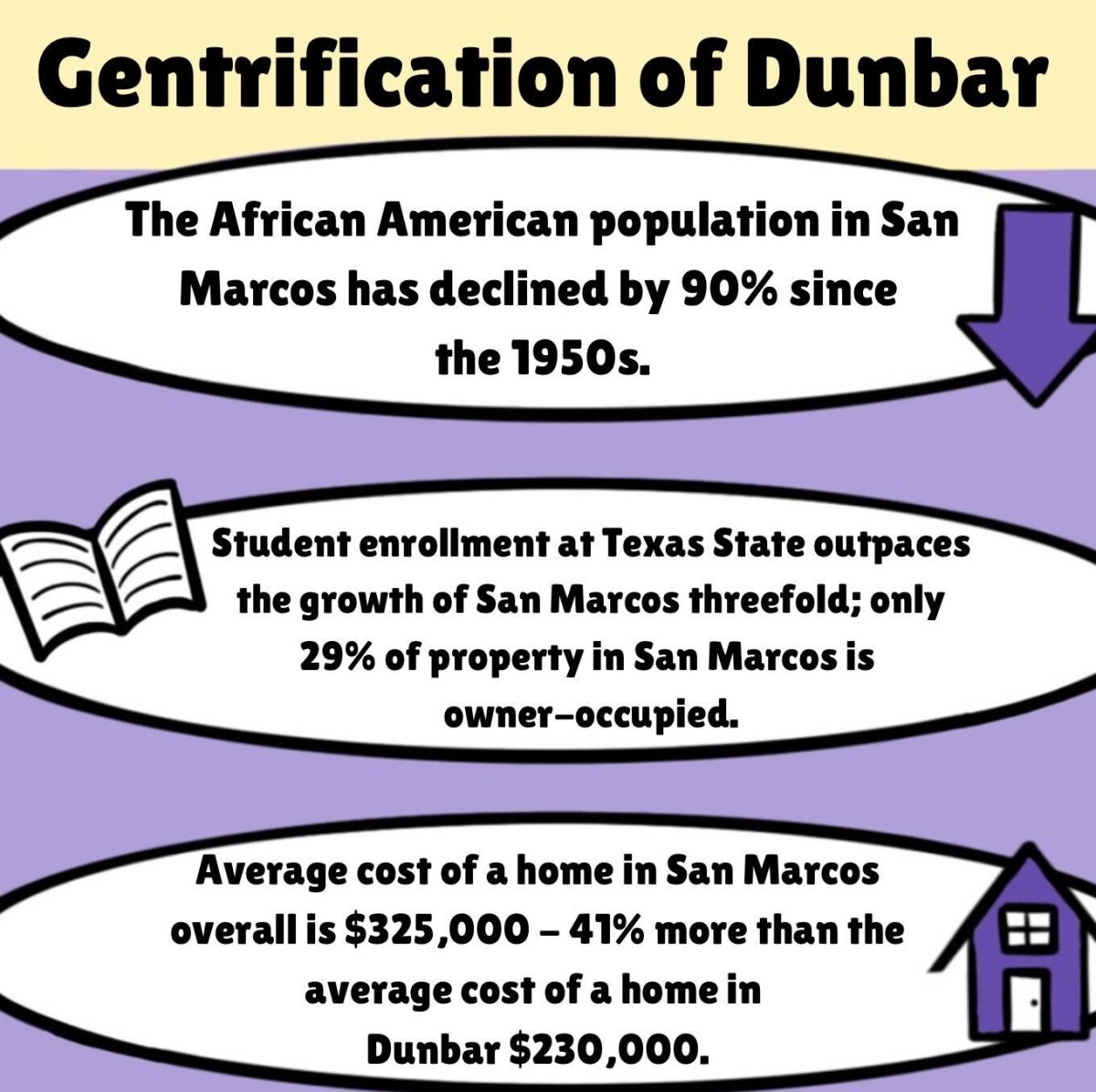The majority of Texas State students will eventually make the decision to live off campus.
Eighty-one percent of students live off campus, according to a US News & World Report. While living off campus may seem like the more economical and independent choice, it is important to consider the university’s role in off-campus living.
While students cannot practically control the prices of privately owned apartment complexes, the university can help its students.
The off-campus experience has been tumultuous to say the least for a number of college students. Most students have problems with move-ins, maintenance or roommate issues. According to the residents of these problematic apartments, the issues stem from apathetic management. Companies can be indifferent when there will always be an influx of students running from the minimal and poor quality housing on campus.
The quality of living would be a reasonable problem to forget if they truly adhered to a ‘get what you pay for’ pricing mode, but that is not the case.
Without including utilities and other bills, the majority of two-bedroom apartments in San Marcos rent for approximately $700-800 a month, according to the Department of Geography.FC’d
Economically, it is a lose-lose situation. Students might as well live in a low-quality room with a stranger, or live in a lower quality room with more space with a stranger for almost the same price.
Apartment management may not be completely to blame here. They’re doing what good businesses do by meeting demand with supply. But with Texas State’s population growing each year, we can expect the demand for off-campus living to grow and with growing demand is growing prices.
The university offers assistance with students choosing to live off-campus through the Off-Campus Living department under the Department of Housing and Residential Life. OCL offers ACT Ally, a collaboration with DHRL that connects students with a list of apartments and service providers through ACT Ally-At-A-Glace. The university claims no affiliation and urges students to do their own research, and encourages them to utilize the Attorney for Students office as well.
On the DHRL website, they claim “Texas State University, the Department of Housing and Residential Life, and Off-Campus Living do not inspect, endorse or assume any responsibility for any properties, accommodations, or other housing options or websites and expressly disclaim any and all responsibility for any problems that may arise in connection with your use of the service.”
In other words, the university defers the blame from themselves to the apartment complex. While the resources may help students, it does not shield students from the across-the-board advantageous attitude apartment leases take. The resources provided for students should be there continuously, and not just after the fact.
Recently, The Point Apartments delayed move in till mid-October and well into midterms, due to failed inspections. Students were given the choice of staying in a hotel or finding their own temporary housing. The university was not able to help these students since housing is finalized before the semester begins.
Texas State has an obligation to represent them against the abusive practices of apartment complexes. The university only gets to wash their hands of the apartment issue once they are capable of offering their own housing for all students.
Because the university is not equipped to house the entire student body, then it has an obligation to protect the housing interests of the students. Between an overpopulated campus, predatory and advantageous apartment practices, and San Marcos city ordinances preventing students from using affording home renting options; students are left at the mercy of whatever force comes across them first.
Categories:
Texas State should be more involved in off-campus housing
March 23, 2018
The Main Point is an opinion written collectively by The University Star’s Editorial Board. Opinions expressed are not necessarily those of our entire publication.
0
Donate to The University Star
Your donation will support the student journalists of Texas State University. Your contribution will allow us to purchase equipment and cover our annual website hosting costs.
More to Discover













